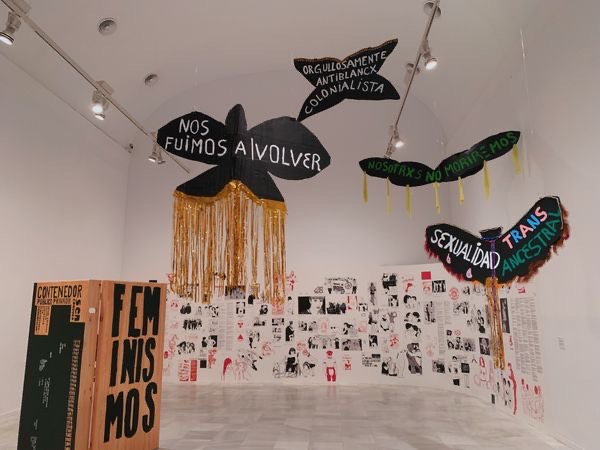
Spanish 24/7 !
Out of everything I’ve been able to experience this semester, some of my proudest moments have been using a second language to express and advocate for myself. Since I’m studying to become a language teacher (including teaching English to immigrants who have just moved to the US), I know how important it is to find your voice in another language when you move to a new country. However, the entire process of learning a second language is incredibly overwhelming, and it requires you to step out of your comfort zone every time you speak. Before coming to Spain, I felt pretty good about my Spanish since I’d taken a number of college classes and used it frequently in my jobs in Boston when working with Spanish-speaking students, but I still didn’t feel entirely confident. I knew immersion would be the best way to grow, but the idea of having to only rely on Spanish to navigate living in a foreign country was of course intimidating. However, after being here for 3 months, I’ve really surprised myself and I couldn’t be more proud of the progress I’ve made in such a short time.
Not only has studying abroad given me the chance to communicate entirely with my host family and professors in Spanish every day, but I’m constantly listening to and speaking Spanish while living in Madrid. Every time I order at a restaurant, navigate the metro system, visit the library, go grocery shopping, I have the chance to practice and grow. Since I’ve been working at a nonprofit, I’ve been speaking strictly in Spanish while answering the phone and organizing clients’ appointments, teaching students in the Spanish language and citizenship classes, and while just getting to know my coworkers. I survived going to the doctors office and explaining all of my symptoms when I was sick, had an appointment with the Spanish police to discuss visa options, and even negotiated when buying a new computer at a local shop all using Spanish.
Overall, I think the biggest lesson with language immersion experiences is that you get out what you put in. I have friends who have become fluent already in the 3 months we’ve been here, and I know other people in my program who stopped learning at the basics. It’s up to you – there’s not a right or wrong way, but having access to an immersive environment really is something to take advantage of. And even if language gain isn’t your main goal, I would still recommend picking up a bit of the local language. Not only will it make your life easier when it comes to day-to-day tasks, but it’s also a way to show the community that you value their culture and are willing to try to connect. Plus, I think knowing Spanish has just made my experience more special. I’ve done cooking classes and wine tastings in Spanish, watched Flamenco shows, gone to the movie theater, and even went to a Maluma concert. I went to a presentation where a few young Moroccan refugees shared their experiences crossed the Spanish border as unaccompanied minors, another where a Ukrainian political journalist provided an analysis of the country’s current state. Not only are you having these experiences in the community’s native language, but you’re able to truly feel connected with the culture as you listen and understand what’s around you.
All this being said – there’s definitely moments when I feel overwhelmed (trying to talk about gigabyte storage and display quality for my new laptop was not one of my finer moments) and language fatigue is really normal to experience when studying abroad. It’s really frustrating when you have to talk about something important and the words just don’t come out, but honestly I think getting through these moments is something that I feel most proud of. It also deepens my perspective of anyone’s experience learning a second language in a foreign country. I’m privileged to be studying abroad, in a world where English is so commonly spoken. But thinking about the adults I work with in Boston who have to find places to live and jobs, organize their legal documents, enroll their children in school, navigating a system that is already so complicated and in a second language – I can’t even begin to imagine the frustration and fatigue that they experience. I think about my dad, who moved to America from Brazil when he was 18, and learned English from the ground up as he built a life for himself in a brand new place. His story and so many others are truly an inspiration.
I couldn’t be more grateful not only for the opportunity I’ve had to practice my Spanish through studying abroad, but also for the opportunity to push myself further out of my comfort zone each day.

